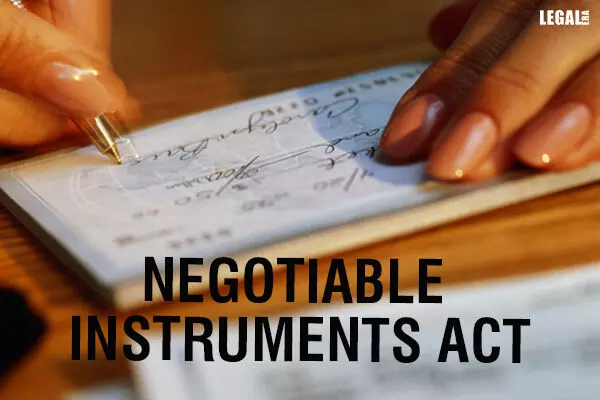- Home
- News
- Articles+
- Aerospace
- Artificial Intelligence
- Agriculture
- Alternate Dispute Resolution
- Arbitration & Mediation
- Banking and Finance
- Bankruptcy
- Book Review
- Bribery & Corruption
- Commercial Litigation
- Competition Law
- Conference Reports
- Consumer Products
- Contract
- Corporate Governance
- Corporate Law
- Covid-19
- Cryptocurrency
- Cybersecurity
- Data Protection
- Defence
- Digital Economy
- E-commerce
- Employment Law
- Energy and Natural Resources
- Entertainment and Sports Law
- Environmental Law
- Environmental, Social, and Governance
- Foreign Direct Investment
- Food and Beverage
- Gaming
- Health Care
- IBC Diaries
- In Focus
- Inclusion & Diversity
- Insurance Law
- Intellectual Property
- International Law
- IP & Tech Era
- Know the Law
- Labour Laws
- Law & Policy and Regulation
- Litigation
- Litigation Funding
- Manufacturing
- Mergers & Acquisitions
- NFTs
- Privacy
- Private Equity
- Project Finance
- Real Estate
- Risk and Compliance
- Student Corner
- Take On Board
- Tax
- Technology Media and Telecom
- Tributes
- Viewpoint
- Zoom In
- Law Firms
- In-House
- Rankings
- E-Magazine
- Legal Era TV
- Events
- Middle East
- Africa
- News
- Articles
- Aerospace
- Artificial Intelligence
- Agriculture
- Alternate Dispute Resolution
- Arbitration & Mediation
- Banking and Finance
- Bankruptcy
- Book Review
- Bribery & Corruption
- Commercial Litigation
- Competition Law
- Conference Reports
- Consumer Products
- Contract
- Corporate Governance
- Corporate Law
- Covid-19
- Cryptocurrency
- Cybersecurity
- Data Protection
- Defence
- Digital Economy
- E-commerce
- Employment Law
- Energy and Natural Resources
- Entertainment and Sports Law
- Environmental Law
- Environmental, Social, and Governance
- Foreign Direct Investment
- Food and Beverage
- Gaming
- Health Care
- IBC Diaries
- In Focus
- Inclusion & Diversity
- Insurance Law
- Intellectual Property
- International Law
- IP & Tech Era
- Know the Law
- Labour Laws
- Law & Policy and Regulation
- Litigation
- Litigation Funding
- Manufacturing
- Mergers & Acquisitions
- NFTs
- Privacy
- Private Equity
- Project Finance
- Real Estate
- Risk and Compliance
- Student Corner
- Take On Board
- Tax
- Technology Media and Telecom
- Tributes
- Viewpoint
- Zoom In
- Law Firms
- In-House
- Rankings
- E-Magazine
- Legal Era TV
- Events
- Middle East
- Africa
Delhi High Court Rules Arbitration Proceedings And NI Act Section 138 Proceedings Can Continue Simultaneously

Delhi High Court Rules Arbitration Proceedings And NI Act Section 138 Proceedings Can Continue Simultaneously
Relies on the judgment of the Supreme Court in a previous case
The Delhi High Court has ruled that arbitration proceedings and proceedings under Section 138 of the Negotiable Instruments (NI) Act, 1881, arise from separate causes of action. Therefore, the pendency of one does not affect the other.
A bench of Justice Amit Bansal observed, “There is no merit in the contention of the petitioners that the complaint under Section 138 of the NI Act is not maintainable in view of the ongoing arbitration proceedings between the parties.”
While dismissing the petition, which sought quashing of a complaint under Section 138, the Court relied on the judgment of the Supreme Court in the Sri Krishna Agencies v. State of A.P. & Anr case, wherein it was held, “There can be no bar to the simultaneous continuance of a criminal proceeding and a civil proceeding if the two arise from separate causes of action.”
The petitioners gave a cheque to the respondent and later requested the latter not to deposit it. However, the respondent deposited the cheque, which was dishonored.
Thereafter, the respondent filed a complaint against the petitioners under Section 138 of the NI Act.
The petitioners contended that the complaint was not maintainable because in terms of a Memorandum of Understanding (MoU) signed between the parties, arbitration proceedings had already been initiated.
On the contrary, the respondent argued that arbitration proceedings and proceedings under Section 138 were independent and could proceed simultaneously.
Thus, while dismissing the petition, the Court held that the question of whether the cheque was given as a security, could only be proved during the trial.
Advocates Rajiv Kumar and Sanjeev Gupta appeared for the petitioners.
The respondent was represented by advocates Ravi Prakash and Astu Khandelwal.



